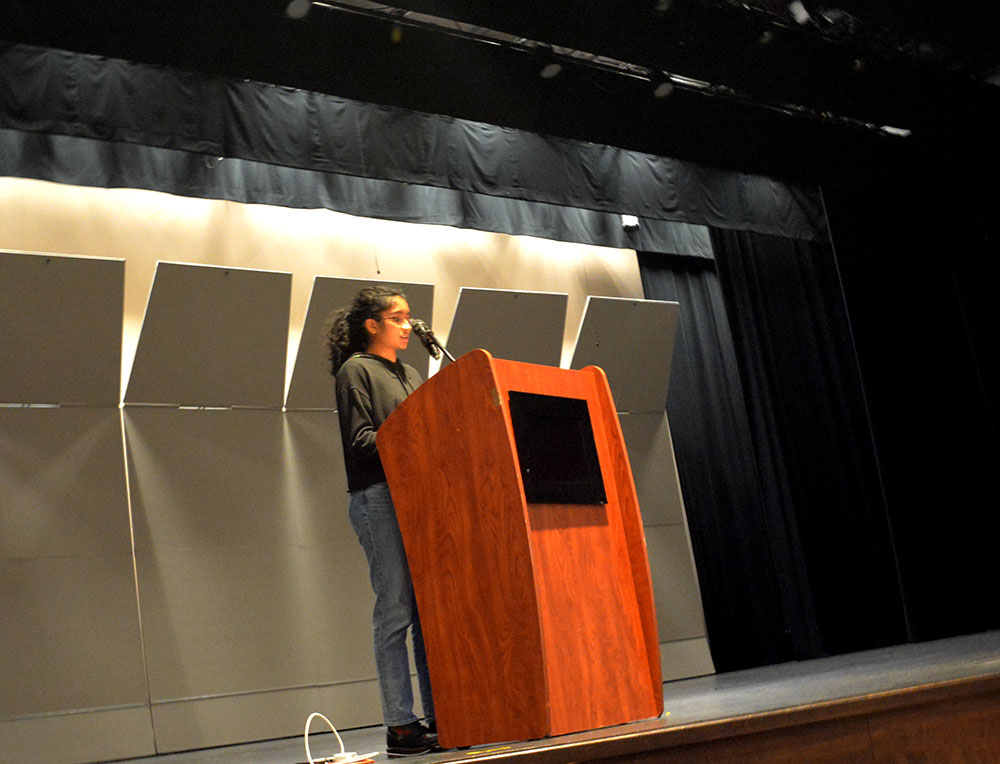By Anna Swanson, Staff Writer

The Republican-led battle against public-sector unions has been in the national news lately, and is likely to affect teachers and administrators at BHS.
Senate Bill 5, which at publication is being considered in the Ohio House of Representatives, promises to decrease the power of public employee unions by restricting their collective bargaining rights, changing the process by which disputes are resolved and banning the right to strike. Additionally, the bill would increase teachers’ health insurance contributions and replace current salary schedules with “merit pay.”
Science Teacher Joe Burwell, who is also a union officer, expressed what many teachers seem to feel about the bill, “I think we can agree that we face a new reality in terms of the financial picture for the state, municipalities and school districts. Public employee unions are not to blame for this crisis, but are being told to sacrifice gains made over the last three decades.”
Social studies teacher Greg Deegan, another union officer, explained his view, “Kasich’s goal is to introduce market forces and more competition into public education. The problem is that while any public institution can learn important lessons from the private world, the fundamental goal of public education — creating a functional, educated, enlightened citizenry — are not the same as the goals of private companies, which are to make profits.
One of the things in the bill that teachers are wary of is that while the bill promises merit pay, it lacks details regarding how the State of Ohio—or school administrators–would define a teacher’s merit.
There are many possible approaches to defining a good teacher. One way to define merit, according to Superintendent Dr. Richard Markwardt, would be through the “value added” system. If the state were to apply this system, “it would be a longitudinal measurement done over several years.”
The value-added system could be one factor among many in determining a teacher’s effectiveness. According to Markwardt, “value-added is calculated based on student test scores in grades three to eight in reading and math only. Grade three is a benchmark, so it’s really grades four to eight.”
So how would merit be defined for teachers who don’t teach a grade that is tested? What about subjects –like art, foreign language or music- that aren’t subject to testing?
Again, “value-added” would only be one approach. Other ways to define merit, according to Markwardt, would be a combination of the following: “formal evaluation by administrators based on observations, teacher-generated portfolios, student surveys, ‘highly-qualified’ teacher status, evidence of continuing education, student achievement/success related to end-of-course exams, ACT, SAT and AP Exams.”
While there are some criteria that can be used to assess teacher quality, many teachers are concerned that their “merit” will be tied to students’ behavior or performance.
Markwardt acknowledged that some students do better than others. He said, “You’re going to have students that don’t behave. The state knows this. No credible system will base a teacher’s performance solely on students. It’s important to consider… how [students] came through the door.”
Principal Robert Hardis noted, “Because SB5 is so vague and is so general, it leaves many things to be interpreted by the Ohio Dept. of Education and administration,” which is why communication between our teachers and administration is going to be so important.
Markwardt agreed, “Communication between teachers and administrators will be of the utmost importance.” He continued, “The administrators that are chosen to represent the Board of Education are appointed because they have a desire to benefit and manage the school. There are going to be challenges and hurdles to overcome but the partnership of both teachers and administrators will bring up the best opportunities for the students.”
Burwell agreed that collaboration is important, but feels that SB5 won’t help. “Weakening or eliminating collective bargaining is not the answer to the budget problems that public employers face. When union members sit across the table from management, we engage in a process that allows both sides to achieve a “win”. This has been the history at Beachwood…when the district faced financial crises in the past, we worked together to get through them. When rising health care costs need to be addressed, we have agreed to pay more of the costs. Whenever the district goes for an operating levy or a bond issue, many Beachwood City Schools employees are there to garner support from the voters.”
While Governor Kasich’s budget makes cuts to school districts, SB5 would save money for the district by requiring employees—including both teachers and administrators–to pay more for their health insurance.
According to Mills, employees would pay 15% of their health care premiums. This would increase the amount that district employees pay by 10%. Based on current insurance rates, Mills projects that the increased cost to district employees would be $1,919 per year for family coverage and $760 per year for single coverage. Factoring in those increases for all employees, the district would save $386,000 per year.
Those who support SB5 believe that public-sector workers are standing in the way of public officials who are trying to cut costs and save taxpayer money.
According to the Economist magazine, in the past 30 years there has been an increase in public worker unionization from 11% in the 1960s to 36% today. Whereas, there has been a drop in the percentage of private-sector union workers from 33% to 15% today.
Public employees argue that their salaries are not excessive, and that it is important for unions to negotiate not just for their own wellbeing, but for the students too. Teacher unions bargain for class sizes, materials, and working conditions.
According to Superintendent Markwardt, unions have been known to defend the actions of their weakest teachers, wasting district resources in the process, and requiring the district to spend time and energy to defend its actions related to those weak individuals.
Burwell disagreed: “If there are weak or ineffective teachers on the staff, the responsibility for that rests with those that made the decision to hire and then renew their contracts…. district administration and the School Board.”
According to Deegan, “Teachers’ unions help to uphold a mutually agreed upon contract. Both the Board and the union sign off on a contract, and the union’s job is to make sure that the language and the spirit of that contract is followed.”
The Beachcomber asked students what they think about the idea of paying teachers based on merit. Freshman Dean Granot thinks it is a good idea because, “Some teachers teach more classes, and more difficult course with more students.”
Senior Jordan Cohen disagreed: “I think merit is a poor way to judge teachers’ salary. I don’t think teachers become teachers for the salary, they become teachers for the benefits and Senate Bill 5 destroys those benefits and this bill does not produce better teachers.”








